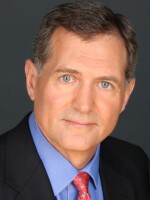SCOTT SIMON, HOST:
Now we're going to move to the Middle East. If you are confused about U.S. policy there, you might have a lot of company. President Trump says the troops are coming back home and that ISIS is defeated. He also says some troops will stay on to protect Syrian oilfields from ISIS, which had been defeated. So what is current U.S. policy in Syria? We have NPR's national security correspondent Greg Myre also in our studio to join us. Greg, thanks so much for being with us.
GREG MYRE, BYLINE: Sure thing, Scott.
SIMON: There are still - and although we obviously have seen pictures of U.S. troops being withdrawn and, alas, Kurdish civilians throwing rotten fruit at them and hurling insults - there are still U.S. troops in Syria, right? What are they doing there?
MYRE: That is correct. Some have left, but some are still there. And their mission seems to have changed. They're going to be protecting the oil. But we don't know how many. The president said this week they were coming out. Yesterday he was still putting out these contradictory tweets saying the oil is secured; we're bringing our troops back home. At the same time, his defense secretary Mark Esper was at NATO saying we're looking at repositioning the troops. So we don't quite know what's going to happen here. It really seems to be a signal of policy being made on the fly.
SIMON: Could you remind us how ISIS got control of Syrian oilfields a few years back anyway?
MYRE: Right. Syria is not a big oil producer. But when ISIS took control of territory in the eastern part of the country, that included the oil fields. And they were eking out about 40,000-50,000 barrels a day and selling it and making money. So I spoke with Joshua Landis at the University of Oklahoma, who closely follows Syria, and he said ISIS started with these refineries that were sort of the size of container-sized trucks. The U.S. found those, bombed those. Then they started selling the crude oil to people who were building big stills and boiling the oil. And those got bombed. And then ultimately, he said it evolved from there.
JOSHUA LANDIS: Ultimately, it was people digging pits in their backyard and trying to boil this stuff in oil cans and everything else in order to break it down so that they're a very crude gasoline.
MYRE: So finally, they - after ISIS was driven out, basically the oil industry has come to a halt there.
SIMON: Does Syria, Greg, or Russia, Turkey, Iran, any of the parties, want the U.S. to stay and guard the oil?
MYRE: No, they really don't. In fact, all of those countries that you mentioned would like to see the U.S. out of the way. Russia and Syria and Iran all feel their own militaries could keep an eye on ISIS and keep ISIS away from the oil. Here again is Joshua Landis.
LANDIS: Russia, the Syrian military, are back in this region. And they are both enemies of ISIS. They will not let that happen. The Syrian regime wants this oil. It's very important to Syria.
MYRE: They would like the U.S. not to get out of - only out of the oilfields, they would like to see it get out of Syria altogether.
SIMON: So this weekend, what about the president's stated goal to bring U.S. troops home, say enough of these endless wars?
MYRE: You know, he keeps saying this, but then it doesn't happen. One of the things we were hearing, some troops would go from Syria to western Iraq, where the U.S. still has troops. A little while ago, we heard there was almost a deal with the Taliban to pull troops out of Afghanistan, and that didn't happen. If you look at the Trump presidency, what you've actually seen is a small but significant increase in U.S. troops in the Middle East and a lot of reshuffling, but no full withdrawals.
SIMON: NPR's national security correspondent Greg Myre. Thanks so much for being with us.
MYRE: My pleasure.
(SOUNDBITE OF MUSIC) Transcript provided by NPR, Copyright NPR.



